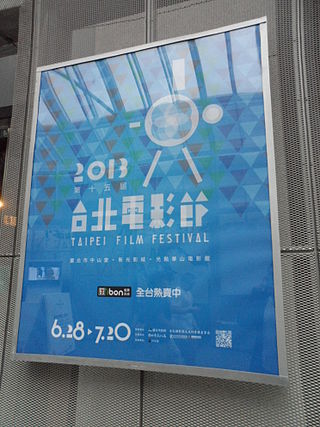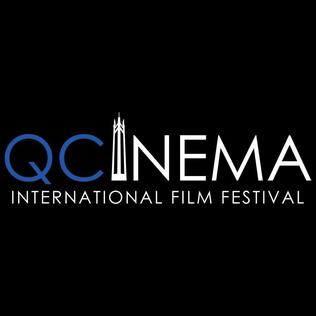Related Research Articles

The cinema of Taiwan or Taiwan cinema is deeply rooted in the island's unique history. Since its introduction to Taiwan in 1901 under Japanese rule, cinema has developed in Taiwan under ROC rule through several distinct stages, including taiyu pian of the 1950s and 1960s, genre films of the 1960s and 1970s, including jiankang xieshi pian, wuxia pian, aiqing wenyi pian, zhengxuan pian, and shehui xieshi pian, Taiwan New Cinema of the 1980s, and the new wave of the 1990s and afterwards. Starting in the second decade of the new millennium, documentary films also became a representative part of Taiwan cinema.
Clara Law Cheuk-yiu is a Hong Kong Second Wave film director who currently resides in Australia.

Edward Yang was a Taiwanese filmmaker. He rose to prominence as a pioneer in the Taiwanese New Wave of the 1980s, alongside fellow auteurs Hou Hsiao-hsien and Tsai Ming-liang. Yang was regarded as one of the leading filmmakers of Taiwanese cinema. He won the Best Director Award at Cannes for his 2000 film Yi Yi.

New Women is a 1935 Chinese silent drama film produced by the United Photoplay Service. It is sometimes translated as New Woman. The film starred Ruan Lingyu and was directed by Cai Chusheng. This film became one of Ruan Lingyu’s better known works. Her suicide on International Women’s day drew attention to the controversial status of new women and made this film a sensation in modern China.

The Taipei Film Festival is a film festival promoted by the city of Taipei, Taiwan, through the Department of Cultural Affairs of the Taipei City Government. It was first held in 1998, from September 28 to October 5. Currently chaired by cinematographer Mark Lee Ping Bin, Taipei Film Festival is the only festival in Taiwan that offers a New Talent Competition for aspiring directors from around the world and a Taipei Awards competition for Taiwanese filmmakers.
Daughter of the Nile is a 1987 Taiwanese film directed by Hou Hsiao-hsien.

Huang Yu-shan is a Taiwanese filmmaker. She has made significant contributions to Chinese cinema in the areas of aesthetics and cultural history. Her focus is the woman's viewpoint, and frequently challenges the status quo in what has been a male-dominated society.
Twin Bracelets is a film produced in 1990 by Cosmopolitan Film Productions Co., a Hong Kong-based company that forms part of the film production conglomerate run by the Shaw brothers who are the owners of the Shaw Brothers Studio. S.L.Wei notes that "Twin Bracelets was shown at international film festivals." It has "won the 1992 San Francisco Gay and Lesbian Film Festival Award for Best Feature." John Charles called Twin Bracelets "(a) somber, engrossing drama" that is "marred only by the inevitability of its narrative." The film has been labeled a ‘lesbian’ film, but also a ‘feminist’ film. Some critics have also focused on what they took to be its ethnological aspects. Such aspects do indeed form the background of Zhaohuan Lu's short story ‘The Twin Bracelets’ (1986) which served as the basis of the film script written by the film director, Huang Yu-shan. Huang Yushan who initially worked for Central Motion Picture Company (CMPC) and for the Shaw Bros. is a director who has made a choice in favor of independent film. In her life and work she is attached to feminism. According to Bérénice Reynaud, she is "one of the rare women to work in the Taiwanese film industry." Prof Lai has called Huang Yu-shan "Taiwan's major feminist director." S.L. Wei sees Huang as "an important voice in Taiwanese women's cinema. The fact that her film Twin Bracelets received relatively much attention "enabled Huang to have in-depth discussions with American independent filmmakers and feminist directors. From then on she began to push consciously forward [with] films about women."

The Image Museum of Hsinchu City is a museum about cinema in East District, Hsinchu City, Taiwan.

Linda Lai Chiu-han (黎肖嫻), also known as Linda Chiu-han Lai, is a Hong Kong-based academic, artist, curator and art historian working at the intersections of experimental video art, interactive media and cultural history. Lai was Associate Professor at the School of Creative Media at the City University of Hong Kong; she retired on 1 July 2023. She is the founder and artistic director of the Writing Machine Collective and runs a self-funded art space called Floating Projects and works as an independent curator of moving image.

SEOUL International Women's Film Festival is an annual film festival held in Seoul, South Korea. The first festival took place on April 1, 1997, which marked the second appearance of the international film festival in Korea following Busan International Film Festival launched in 1996. This was a time when there was not a clear idea on how to define a film festival. During this time, SEOUL International Women's Film Festival came up with the catchphrase "See The World Through Women's Eyes." This phrase set its main goal to introduce women's films that explore “women’s reality from the women’s perspectives.”

Ai Xia was a Chinese left-wing silent film actress and screenwriter. She committed suicide in 1934, the first Chinese actor to have done so. Her suicide inspired Cai Chusheng's classic film New Women starring Ruan Lingyu, who also killed herself soon after the release of the film.

White Ant is a 2016 Taiwanese drama film and the narrative feature film debut of Chu Hsien-che, who worked as a documentarian for more than 20 years prior to White Ant. The film stars Wu Kang-jen, Aviis Zhong and Yu Tai-yan.

Yeh Feng, also known as Julie Yeh Feng, is an actress, singer and businesswoman. She starred in various films throughout the 1950s and 1960s, and is considered to have been one of Hong Kong's biggest stars of the period.

Peggy Chiao is a Taiwanese-Chinese filmmaker, producer, distributor, educator, juror, critic, and author. She is known internationally as the "godmother of New Taiwan Cinema".
Women in documentary film describes the role of women as directors, writers, performers, producers, and other film industry professions. According to a 2017 study by San Diego University's Center for the Study of Women in Television and Film, women make up around thirty percent of the population of people working in the documentary film industry, worldwide. In a separate study on the employment of women in indie films, the Center found that overall fewer woman directed independent films were screened at film festivals but that a higher percentage of woman directed documentary films were screened, at 8 films versus 13 documentary films directed by men. In an October 2015 Annenberg study, women documentarians in countries other than the U.S. were 40 percent likely to be “helmers” as opposed to 30 percent likely in the U.S. The study counted films with multiple countries involved “as other countries” but if the U.S. was involved it wasn't counted as “other countries.”

The QCinema International Film Festival is an annual film festival held in Quezon City, Philippines. The festival showcases local and international films, documentaries, and short films, and gives grants to their creators. As of 2017, the venues for the festival are Trinoma, Gateway Mall, Robinsons Galleria, and U.P. Town Center.
Bu Liao Qing is a 1947 Chinese film directed by Sang Hu and written by Eileen Chang.
Mayfair Yang or Yang Meihui is a Taiwanese-American cultural anthropologist of China. Her research focuses on modernity, religion and secularism, state formation, religious environmentalism, China Studies, gender studies, postcolonial studies, and media studies.
Hou Chi-jan is a Taiwanese director and writer. His works are often related to historical memories.
References
- ↑ "歡迎光臨台灣 女性影像學會 〈女性電影,女性影展, woman film festival, women film festival, @ Taiwan〉". wmw.com.tw. Retrieved 2014-07-25.
- ↑ Lingzhen Wang (13 August 2013). Chinese Women's Cinema: Transnational Contexts. Columbia University Press. pp. 1–. ISBN 978-0-231-52744-6.
- ↑ Peter W. Daniels; Kong-Chong Ho; Thomas A. Hutton (2012). New Economic Spaces in Asian Cities: From Industrial Restructuring to the Cultural Turn. Routledge. pp. 82–. ISBN 978-0-415-56773-2.
- ↑ "TIQFF 2016". Travel Gay Asia. 2016. Retrieved 24 March 2017.
- ↑ Internet Team. ""Highlights from Taiwan's Women Make Waves Film Festival" in New York Public Library - Activities - Taipei Economic and Cultural Office in New York 駐紐約台北經濟文化辦事處". taiwanembassy.org. Retrieved 2014-07-25.